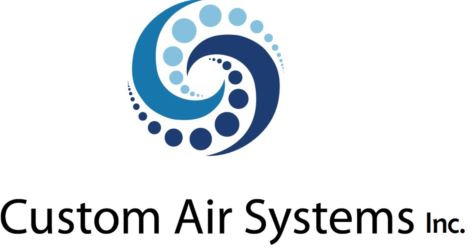
We can all benefit from saving money from time to time. An easy way to accomplish this is by making some energy-efficient changes throughout your home. Upgrading your HVAC equipment or putting in a smart thermostat, for example, gives you more control over your heating and cooling system, resulting in a more energy-efficient home and lower monthly energy bills.
Keep reading to learn about 4 ways you can make energy-efficient home changes.
1. Use a Smart Thermostat
If you still use an older thermostat and adjust it manually, think about taking a step toward the future by installing a smart, or Wi-Fi, thermostat – which comes with several features to improve your home's energy efficiency.
The functionality homeowners like the most is being able to adjust their smart thermostats from anywhere they want by using their smartphone or other smart device. For example, if you forget to use your thermostat before leaving for vacation, you can just take out your smartphone and make the adjustments.
Like a programmable thermostat, a smart thermostat enables you to schedule your home’s temperature according to the time of day and day of the week so you’re not spending energy on an empty house. Smart thermostats also feature the capability to understand your temperature preferences over time and automatically make energy-efficient adjustments. They can even create monthly energy reports that demonstrate how much energy you are using and when so you can make modifications to cut costs.
If you’re wanting to know how to obtain a free smart thermostat, talk to your utility company to learn if there are any discounts or free smart thermostats offered.
2. HVAC Tune Ups
Regrettably, many homeowners often forget to keep their heating and cooling systems maintained. While this may not seem like a huge deal, ignoring maintenance can result in a number of issues, including inefficiency, breakdowns, and a shorter system lifespan.
When performing an HVAC maintenance service, the technician should inspect your HVAC system, clean important components, and identify minor problems before they create bigger, more expensive repair issues. Maintenance can keep HVAC systems working at optimal condition, which means less energy is needed to heat and cool your home. This can lower your energy bills, expand the lifespan of HVAC equipment, and lead to fewer repairs.
We suggest two HVAC tune ups every year – one during the spring before summer and one in the fall before the arrival of cold weather.
3. Replacing Your Old, Inefficient HVAC Equipment
Regretfully, like any appliance, HVAC systems don't last forever and eventually need to be replaced. New heaters and cooling equipment is much more effective than units sold just over a decade ago. Thankfully, quality HVAC companies like Custom Air Systems Inc can offer professional services such as furnace installation in Port St. Lucie.
Well-maintained furnaces and air conditioners can run for about 15-20 years. If your systems are within that period of time, it is often be a good idea to replace them ahead of time to prevent premature equipment failures that can leave you cold and uncomfortable on a cold winter night. If your system is approaching 15 years old and has a problem that needs an expensive repair, it’s definitely time to replace it. Per the U.S. Department of Energy, installing a new HVAC system can save you approximately 20-40% on your monthly energy bills, so you’ll get back some of the costs of putting in a new system.
A professional comfort technician can help you identify the most energy efficient HVAC system on the market. In general, try to find HVAC systems that are Energy Star certified, which means the equipment satisfies strict guidelines made by the U.S. Environmental Protection Agency. LENNOX HVAC systems are some of the most efficient systems on the market, boasting both high AFUE and SEER ratings. AFUE is intended for heating systems and illustrates how well they convert fuel to heat. SEER, meanwhile, is used to measure the efficiency of air conditioning systems.
Get in touch with a reputable HVAC provider like Custom Air Systems Inc for air conditioning installation in Port St. Lucie.
4. Look for Energy-Efficient Air Filters
The next time you’re searching for new HVAC filters, keep in mind that not all air filters are capable of providing the same results. Some air filters are far more effective than others, resulting in lower energy bills and cleaner indoor air.
The effectiveness of HVAC air filters is illustrated by their Minimum Efficiency Reporting Value, or MERV rating. The MERV scale ranges between 1-20; the higher the number, the more effective the filters are. It’s relevant to note, though, that high-efficiency air filters can sometimes obstruct airflow too much according to the type of HVAC system you have. It’s beneficial to review the owner’s manual before buying a filter to find the best option for your system.




